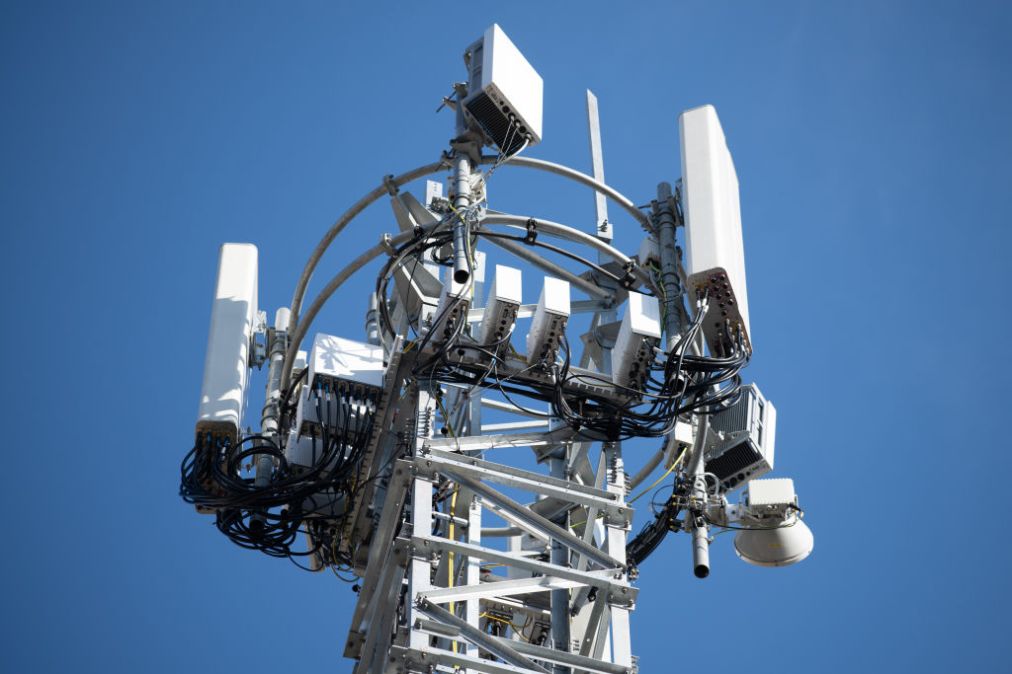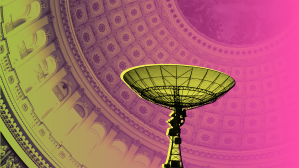Carr: FCC must continue freeing up spectrum for 5G

The Federal Communications Commission must continue to free up wireless spectrum, often used by federal agencies, for commercial 5G services if the U.S. wants to maintain its leadership in the space ahead of competitors like China, said Commissioner Brendan Carr.
The senior Republican on the commission proposed a spectrum calendar to free up and auction off airwaves as quickly as possible, during an American Enterprise Institute event Monday.
During the Trump administration, the Republican-controlled FCC opened up more than 6 gigahertz of spectrum for licensed 5G services, in addition to thousands of megahertz of unlicensed spectrum, a trend Carr wants to see continued.
“We need to be clear-eyed about our spectrum policy going forward,” Carr said. “Whether we like it or not, freeing up more spectrum requires FCC leadership that accumulates political capital and has the willingness to spend it.”
Carr’s spectrum calendar for 2021 calls for:
- the auctioning of 100 MHz in the 3.5 GHz spectrum band at power levels supporting 5G builds, which is likely to be voted on this week;
- the auctioning of 100 MHz in the 2.5 GHz band, “prime” mid-band spectrum;
- adopting an order permitting very low-powered devices to operate and allowing client-to-client devices to communicate in the 6 GHz band, promoting augmented and virtual reality applications;
- seeking comment, including from federal agencies, on increasing power levels for Citizens Broadband Radio Service operations in the 3.5 GHz band;
- starting proceedings to update rules for the “vastly underutilized” U-NII-2C band; and
- working with Congress to reauthorize the FCC’s spectrum auction authority, which expired for most bands at the end of fiscal 2022.
In 2022, Carr wants the FCC to hold an auction for the 1300-1350 MHz band, which federal agencies could vacate by next year, and another auction in the 42 GHz millimeter wave band.
For 2023 and beyond, Carr envisions auctions in the lower 3 GHz band; 4.8 GHz band, which other countries have licensed exclusively for 5G; and portions of the 7.25-8.4 GHz band.
As for 5G infrastructure, Carr wants the broadband maps Congress gave the FCC $98 million to complete finished this fall and not next year.
“Getting those maps is the key to unlocking the funding that will be needed to close the digital divide,” Carr said. “If we need to allocate more agency resources to this effort, then we should do it.”
Carr desires a version 1.0, minimalist approach to the maps to streamline the process. They need only contain information needed to allocate money from the Rural Digital Opportunity Fund Phase II and 5G Fund, Carr said.
The Republican-run FCC practiced a “light touch” approach to infrastructure regulation, and the Democrat-led FCC should continue to make it easier to build 5G infrastructure on federal lands, Carr said. A Federal Lands Desk should be designated to coordinate with federal agencies, he added.
Carr also urged the creation of thousands of tower technician and telecommunications crew jobs in partnership with trade schools and cautioned against subsidizing “overbuilding” in the form of new entrants in the 5G space.
Restoring net neutrality, which would prevent internet service providers from charging different rates depending on the type of communication, is a big issue for Democrats. The Republican-run FCC overturned those protections, and Carr argued the successful performance of U.S. networks during increased pandemic traffic levels was proof it was the right decision.
China has seen a 40% reduction in download speeds, and European countries asked Netflix to reduce its video quality during the pandemic, Carr said.
“We should also see the push for the return to Title II Net Neutrality for what it is: a push for rate regulation,” he said. “Those backing this misguided policy simply refuse to accept the reality that the internet has flourished since we repealed the ill-advised Title II regulations.”






